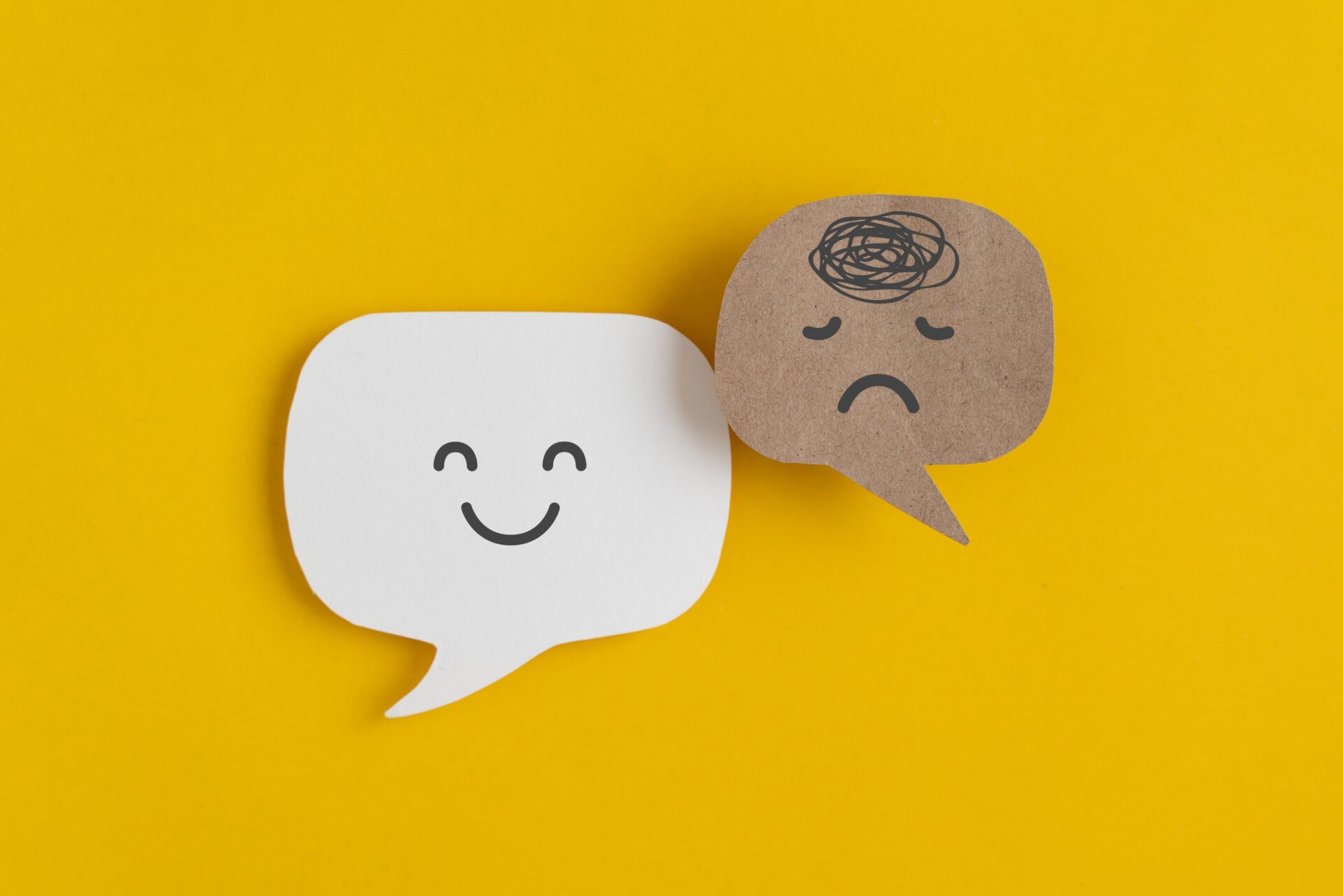Mental Health Disorders
 Author:
Linda Armstrong
Author:
Linda Armstrong
 Co-Author:
Carlos Protzel, Psy.D.
Co-Author:
Carlos Protzel, Psy.D.
 Editor:
Carrie Steckl, Ph.D.
Editor:
Carrie Steckl, Ph.D.
 Reviewer:
Shivani Kharod, Ph.D.
Reviewer:
Shivani Kharod, Ph.D.
Mental disorders are health conditions that affect a person’s thoughts, feelings, moods, behaviors, and daily functioning. They’re often associated with distress or problems functioning in family, social, and work environments.
Mental health conditions can vary in intensity and can affect anyone regardless of age, gender, socioeconomic status, or background. Understanding the various types of mental disorders is essential for recognizing symptoms, seeking appropriate treatment, and reducing stigma.

Common Types of Mental Health Disorders
According to insights from the 2023 National Survey of Drug Use and Health (NSDUH), almost 59 million adults had a mental illness in the last year [1]. That said, no two people likely experienced the same exact symptoms.
That’s because mental illnesses can be categorized into a number of disorder types. In fact, the Diagnostic and Statistical Manual of Mental Disorders, Fifth Edition (DSM-5) includes more than 200 mental disorder classifications.
Some of the most common mental health disorders include [2]:
- Anxiety Disorders: Anxiety disorders involve excessive worry, nervousness, or fear that interferes with daily activities. Examples include generalized anxiety disorder, panic disorder, and specific phobias.
- Attention-Deficit/Hyperactivity Disorder (ADHD): This neurodevelopmental disorder is marked by a persistent pattern of inattention and/or hyperactivity and impulsivity that interferes with one’s functioning or development. Managing ADHD effectively requires a comprehensive approach that may include medication, therapy, and lifestyle adjustments.
- Bipolar Disorder: This condition causes unusual shifts in mood, energy, activity levels, and the ability to carry out day-to-day tasks. It also causes episodes of mood swings that can range from depressive lows to manic highs.
- Depressive Disorders: Characterized by persistent feelings of sadness and loss of interest in activities once enjoyed, various types of depression affect how a person feels, thinks, and handles daily activities.
- Post-Traumatic Stress Disorder (PTSD): Developed after experiencing or witnessing a traumatic event, PTSD symptoms include flashbacks, nightmares, severe anxiety, and uncontrollable thoughts about the event.
- Schizophrenia: Schizophrenia is characterized by abnormal interpretations of reality, hallucinations, delusions, disordered thinking, and behavior that impairs daily functioning.
Mental Disorder Symptoms and Diagnosis
Diagnosing mental disorders typically involves a comprehensive assessment by a mental health professional. Psychiatrists and psychologists use the Diagnostic and Statistical Manual of Mental Disorders, Fifth Edition (DSM-5) as the principal authority for psychiatric diagnoses in the United States. This manual provides standardized criteria for diagnosing mental disorders based on symptoms, behaviors, and the duration and severity of these issues.
The mental disorder symptoms used to form a diagnosis vary widely depending on the specific condition, the patient’s circumstances, and other factors. Bipolar disorder symptoms, for instance, include distinct episodes of mania and depression, while anxiety disorders manifest primarily through excessive worry and fear.
While each illness has its own set of symptoms, a few common warning signs of a mental disorder include [3]:
- Changes in sleep patterns or appetite
- Withdrawal from activities and relationships
- Decreased ability to function at school, work, or home
- Problems with concentration, memory, or logical thought
- Heightened sensitivity to sights, sounds, smells, or touch
- Feeling unusually confused, forgetful, angry, upset, worried, or scared
- Prolonged or strong feelings of irritability or anger
- Thoughts of suicide or talking about wanting to die
Early identification of mental disorder symptoms is paramount for timely intervention and treatment. If several of these symptoms are present and are causing significant distress or impairment in daily functioning, it’s important to consult a healthcare provider for a proper evaluation.
Mental Disorder Causes and Risk Factors
While the exact cause of mental disorders remains unclear, research has identified broad contributing factors and potential risk factors that can increase vulnerability to mental illness. Broad contributing factors include both biological and environmental factors.
Genetic predisposition is clearly linked to mental disorders. Specifically, mental illness is more common among blood relatives, and certain genes may increase one’s risk.
When it comes to environmental factors, toxins, alcohol, drugs, inflammatory conditions, and prenatal exposure to environmental stressors have also been linked to mental illness. Additionally, ongoing or acute exposure to stressors and trauma can also lead to mental disorders [4].
Along these same lines, several risk factors increase the possibility of experiencing poor mental health. For instance, a lack of access to essential resources such as healthcare, education, and housing can create barriers that exacerbate mental health issues. Additionally, social factors, including interpersonal and institutional discrimination, further contribute to this risk [5].
Substance misuse, particularly alcohol and drugs, also plays a critical role in deteriorating mental health. Adverse childhood experiences and interpersonal violence can also have lasting effects, while social isolation often intensifies feelings of loneliness and despair.
What’s more, medical conditions such as traumatic brain injuries, cancer, or diabetes can complicate mental health, highlighting the interconnectedness of physical and mental well-being [5].
Substance Use and Mental Health
The relationship between substance use disorders and mental health conditions is complex, with both conditions often occurring at the same time (a condition known as dual diagnosis or co-occurring disorders). In fact, according to the 2023 National Survey on Drug Use and Health (NSDUH), among the 58.7 million adults with a mental health disorder, roughly one-third (more than 20 million people) also had a substance use disorder [1].
Several factors contribute to this high rate of co-occurrence. Some people use alcohol or drugs to self-medicate symptoms of mental health disorders, temporarily relieving distress but potentially worsening symptoms over time. Meanwhile, substance use can trigger or exacerbate symptoms of mental illness due to its effects on brain structure and function.
In addition, both substance use disorders and mental disorders share common risk factors, including genetic vulnerabilities, environmental stressors, and trauma history. So while one condition doesn’t automatically lead to the other, they tend to reinforce each other in a potentially perpetuating cycle [6].
Given the connection between these two conditions, integrated treatment is paramount, as it addresses both conditions simultaneously. This approach typically includes a combination of behavioral therapies, medication, case management, and support services. Research shows that integrated treatment leads to better outcomes than treating each disorder separately [6].
Mental Disorder Treatment Options
Effective treatment for mental disorders typically involves a personalized approach that may combine several therapeutic methods. Treatment options include [7]:
- Psychotherapy: Also known as talk therapy, psychotherapy helps patients understand their conditions and develop coping strategies. Common forms include cognitive behavioral therapy (CBT), which focuses on changing negative thought patterns; dialectical behavior therapy (DBT), which helps regulate emotions; and psychodynamic therapy, which explores how unconscious processes influence behavior. Group therapy can also be beneficial, offering support from others with similar experiences.
- Medications: Psychiatric medications play a critical role in managing symptoms for many people. Antidepressants, anti-anxiety medications, mood stabilizers, and antipsychotics can help correct chemical imbalances in the brain. However, psychiatric medications are often most effective when combined with psychotherapy.
- Inpatient and Outpatient Treatment Programs: Several treatment settings are available, including inpatient treatment, which features 24/7 care and monitoring within a structured environment, as well as various levels of outpatient care. Among them, partial hospitalization programs (PHPs) and intensive outpatient programs (IOPs) provide intensive treatment during the day while allowing patients to live at home in the evenings.
- Brain Stimulation Therapies: When medications and psychotherapy are not effective, brain stimulation therapies such as electroconvulsive therapy (ECT), transcranial magnetic stimulation (TMS), and vagus nerve stimulation (VNS) can be employed.
While a host of treatment options are available, treatment isn’t a one-size-fits-all solution. Rather, effective care is highly individualized based on one’s specific diagnosis and severity of symptoms, as well as one’s unique needs and preferences.
Support for Mental Health Issues
Support for those managing mental health conditions extends beyond formal treatment settings, and it can include helping others as well as oneself. In fact, self-help and at-home strategies play a vital role in mental health recovery and ongoing wellness.
Supportive Strategies for Oneself
While there’s no guaranteed way to prevent mental illness, taking proactive steps can help address symptoms and reduce their impact on daily life. Integrating the following practices can support mental well-being and complement formal treatment approaches [4]:
- Pay Attention to Warning Signs: Learn what might trigger mental health symptoms and seek help when these warning signs occur.
- Take Care of Physical Health: Regular physical activity, adequate sleep, and a nutritious diet can improve both physical and mental well-being.
- Avoid Alcohol and Drugs: Substance use can trigger or worsen symptoms of mental illness and may interact negatively with medications.
- Practice Stress Management: Techniques such as meditation, mindfulness, and yoga can help manage stress, which often exacerbates mental health symptoms.
- Maintain Routines: Regular schedules for meals, bedtime, physical activity, and social interactions provide structure and stability.
- Set Realistic Goals: Breaking large tasks into smaller, manageable steps can prevent feeling overwhelmed.
- Stay Connected: Frequent social interaction helps prevent isolation and provides emotional support.
- Attend Regular Check-Ups: Consistent appointments with healthcare providers ensure appropriate monitoring and adjustment of treatment plans.
Broaching the Topic with Others
Discussing concerns about someone else’s mental health can sometimes cause fear and trepidation. However, the National Alliance on Mental Illness (NAMI) offers a host of tips to approach someone struggling with mental health.
Several suggestions include [8]:
- Create a Comfortable Environment: Choose a quiet space for conversation to minimize distractions and interruptions.
- Approach Gradually: Start with a gentle greeting to ease into the conversation, respecting their readiness to talk.
- Speak Calmly: Use a relaxed tone to help the person feel at ease during the discussion.
- Stick to One Topic: Communicate clearly and focus on one subject at a time to avoid overwhelming them.
- Practice Reflective Listening: Show empathy by acknowledging their feelings, such as saying, “Today must be really challenging.”
- Encourage Open Communication: Ask appropriate questions without prying, allowing them to share at their own pace.
- Offer Genuine Support: Express concern and ask how to help, reinforcing hope for recovery and connection to resources.
Living with a Mental Disorder
Living with mental illness can transform ordinary activities into extraordinary accomplishments. Despite these obstacles, myriad people navigate these challenges successfully, gradually building lives filled with meaning and genuine connection.
Still, their recovery rarely follows a predictable path, instead weaving through alternating periods of stability, occasional setbacks, and personal growth. Nevertheless, what begins as a challenging diagnosis can ultimately evolve into a transformative journey of self-discovery and emotional resilience.
By combining professional treatment with strong support networks and personalized coping strategies, those living with mental disorders can gradually progress beyond simply managing symptoms to embracing life’s possibilities and even discovering unexpected strengths along the way.
- Substance Abuse and Mental Health Services Administration. (2024). Key Substance Use and Mental Health Indicators in the United States: Results from the 2023 National Survey on Drug Use and Health. Substance Abuse and Mental Health Services Administration. https://www.samhsa.gov/data/sites/default/files/reports/rpt47095/National%20Report/National%20Report/2023-nsduh-annual-national.pdf. Accessed 30 April 2025.
- National Alliance on Mental Illness. (n.d.). Mental health conditions. National Alliance on Mental Illness. https://www.nami.org/about-mental-illness/mental-health-conditions. Accessed 30 April 2025.
- National Alliance on Mental Illness. (n.d.). Warning signs and symptoms. National Alliance on Mental Illness. https://www.nami.org/about-mental-illness/warning-signs-and-symptoms. Accessed 30 April 2025.
- Mayo Clinic. (2022, December 13). Mental illness: symptoms and causes. Mayo Clinic. https://www.mayoclinic.org/diseases-conditions/mental-illness/symptoms-causes/syc-20374968. Accessed 30 April 2025.
- Centers for Disease Control and Prevention. (2024, August 8). About mental health. Centers for Disease Control and Prevention. https://www.cdc.gov/mental-health/about/index.html. Accessed 30 April 2025.
- National Institute on Drug Abuse. (2018). Common comorbidities with substance use disorders. National Institute on Drug Abuse. https://nida.nih.gov/sites/default/files/1155-common-comorbidities-with-substance-use-disorders.pdf. National Institute on Drug Abuse.
- Mayo Clinic. (2022, December 13). Mental illness: diagnosis and treatment. Mayo Clinic. https://www.mayoclinic.org/diseases-conditions/mental-illness/diagnosis-treatment/drc-20374974. Accessed 30 April 2025.
- National Alliance on Mental Illness. (n.d.). Tips for how to help a person with mental illness. National Alliance on Mental Illness. https://www.nami.org/get-involved/nami-faithnet/tips-for-how-to-help-a-person-with-mental-illness. Accessed 30 April 2025.
The Clinical Affairs Team at MentalHealth.com is a dedicated group of medical professionals with diverse and extensive clinical experience. They actively contribute to the development of content, products, and services, and meticulously review all medical material before publication to ensure accuracy and alignment with current research and conversations in mental health. For more information, please visit the Editorial Policy.
We are a health technology company that guides people toward self-understanding and connection. The platform provides reliable resources, accessible services, and nurturing communities. Its purpose is to educate, support, and empower people in their pursuit of well-being.
Linda Armstrong is an award-winning writer and editor with over 20 years of experience across print and digital media.
Shivani Kharod, Ph.D. is a medical reviewer with over 10 years of experience in delivering scientifically accurate health content.
The Clinical Affairs Team at MentalHealth.com is a dedicated group of medical professionals with diverse and extensive clinical experience. They actively contribute to the development of content, products, and services, and meticulously review all medical material before publication to ensure accuracy and alignment with current research and conversations in mental health. For more information, please visit the Editorial Policy.
We are a health technology company that guides people toward self-understanding and connection. The platform provides reliable resources, accessible services, and nurturing communities. Its purpose is to educate, support, and empower people in their pursuit of well-being.